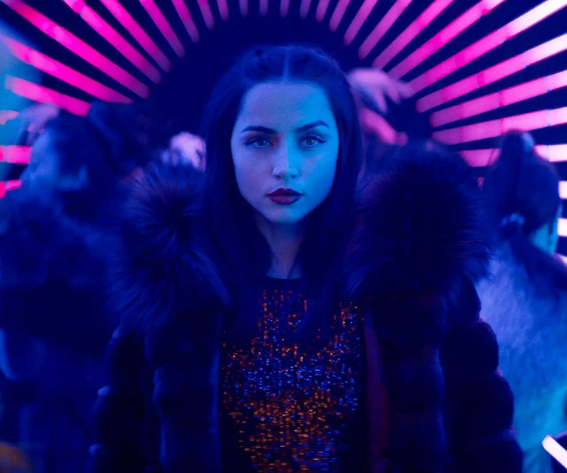Ironically, I’ve been looking forward to the new – and final – Indiana Jones for many years now, but once it hit the cinemas I didn’t rush in to watch it. It was a combination of being busy, travelling and trying to avoid the crowds – so I only decided to finally go and watch it at the middle of August. Until then, virtually all the peple I had talked with – parents, friends, colleagues – told me that they had great fun with it, and that it was miles better than ‘The Kingdom of the Crystal Skull‘. Which had me quite relieved, because the frequent changes that the production process experienced – from script to director to start with the more obvious ones – had me worried. Because we really wouldn’t need another Indiana Jones if it was to be worse than the ‘Crystal Skull’. Thankfully, that was not the case. So, what does ‘Indiana Jones and the Dial of Destiny‘ have to offer?
❝A good 30 minutes of prime Indy action, which was a joy to behold and experience.❞
It’s been 15 years since the previous Indiana Jones film was realeased. And, while that is not the biggest gap between two Indy films – that would be a whole years between ‘The Last Crusade‘ in 1989 and the’ Kingdom of the Crystal Skull’ in 2008 – it’s a decade and a half during which Harrison Ford aged more than before. You wouldn’t say that once you start watching the ‘Dial of Destiny’, though, as the first roughly half an hour takes place on a train in the Bavarian Alps back in 1944, and features a young Indy… played by Harrison Ford. For a brief moment, you might think that they somehow used old footage back from the early 80s, it’s that well done – until you realised the image looks simply too crisp. And with the fantastic de-aging that we’ve seen in ‘The Irishman’ as an example, ‘Dial of Destiny’ offers us a good 30 minutes of prime Indy action, which was a joy to behold and experience.
When the dials are turned back to the present day, which in the case of the film is the late 60s, Indy is now a more familiar-looking Harrison Ford, who is about to retire as a professor. Still mouring the loss of his son in the Vietnam War, and estranged from his wife Marion, he is lured into an adventure, central to which is a dial conceived by Archimedes, a device which supposedly can sense fractures in the fabric of time, thus allowing the possibility of time travel. Along the way, Indy ends up in Italy, with a detour in Greece and, well, let’s say that rumours that ancient Roman soldiers were seen on the set of the film were not completely off the mark. And, of course, what kind of Indiana Jones adventure would it be if Indy wasn’t constantly chased by (sort-of) Nazis?
What was completely awesome is that the film manages to reunite Indiana Jones with not only Marion (who had appeared in ‘Crystal Skull’ as well, sure), but also with Sallah, who had been absent since ‘The Last Crusade’. And here comes one of the few criticism that I will aim at the film – it completely underuses Sallah, while also sort of teasing the fact that he could have played a more active role in the proceedings. And while his standout line is memorable and alludes, on a general level, to all of us Indy fans who were hoping for another grand adventure, Sallah unfortunately doesn’t get his slice of the pie. And neither does Antonio Banderas’ character, who holds a lot of potential, but plays a very minor role. In terms of the newcomers with more active roles, there are two. Phoebe Waller-Bridge portrays Helena Shaw, the daughter of Indy’s great friend Basil Shaw (Toby Jones), and does a great job. Helena is a great character in her own right, much better than Indy’s companions from ‘Crystal Skull’, and the fact that she is a different kind of archaeologist works very well within the plot. The second character is the antagonist – Dr Voller, a former Nazi who shares a passion for Archimedes and objects of great power – and is expertly played by Mads Mikkelsen. Is Dr Voller an amazing and complex antagonist? Absolutely not – but that’s not the point of Indiana Jones films, so the dynamics work just fine.
❝It does extremely well to extract every last drop of Indiana Jones substance from the premise.❞
All minor drawbacks aside, ‘Dial of Destiny’ is exactly what we needed it to be. It reminds us that Indy is old, which is understandable considering the sheer amount of time that he had run-ins with Nazis, been shot, tortured, and forced to drink Kali’s blood among others. All of these are duly referenced in the film, just to serve as a reminder. While it may not be on quite the same level as the first three films from the 80s, ‘Dial of Destiny’ does extremely well to extract every last drop of Indiana Jones substance from the premise, and ends the story on the high note it definitely deserved.










Leave a reply